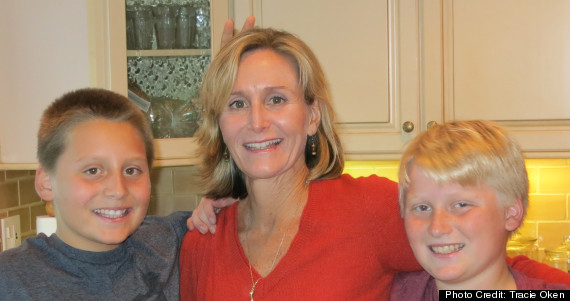
Before her twin sons were born, Tracie Oken was a product manager for a software company. But along came her babies, followed by a few failed attempts at "having it all," and Oken gave up trying to work outside the home. She had heard the stories and knew how hard other women had had it trying to re-enter the job force once they stepped away from it. But for her, it was the right choice to make, she reasoned. She instead invested all her energy in parenting her boys, including volunteering at their school.
But from day one as a PTA volunteer, something bothered her big time: the school directory book.
Schools, she said, have been painfully slow to embrace technology. When Oken saw what laborious manual effort went into publishing the school directory -- and its imperfect results -- she knew she had to do something. Call it building a better mousetrap.
For the uninitiated, a school directory is the spine of today's school life. It becomes the Bible you turn to when your child is home sick and needs to know what pages he must do for math homework. It is the handbook that contains precious home addresses to send invitations for birthday parties. And should your information appear incorrectly in the school directory, it is tantamount to a sentence in purgatory until the next printing: No one can find you.
What Oken, a 52-year-old suburban mother, did was create a software program for a school directory that allows corrections, updates and automatically "graduates" kids at the end of the school year. It is easy to use, searchable, and in its mobile app version can connect directly to Google Maps for driving directions so that you don't get lost picking up Junior at his playdate. The mobile app also allows you to create lists of favorites, which means you can have easy access to every member of the soccer team when you're stuck in traffic and need someone to bring your daughter home.
"Priceless," is how one user of the program described it.
Seeing how well-received her program was at her sons' school, she was hit with a stroke of the obvious and turned it into a business -- MyDirectoryMaker.com.

Oken's story is almost that of the Accidental Entrepreneur. Within about three years and with just a minimal investment of less than $20,000 -- she hired a programmer to refine the software -- she has turned MyDirectoryMaker.com into a business that has grown exponentially and now generates $150,000 a year in income for what is essentially a part-time job she does from home. There are more than 1,000 users of her software and she fields anywhere from 10 to 25 calls a week from potential new clients -- all from word of mouth. She does no advertising.
During her busy seasons -- late summer and early fall when the school year is gearing up -- she works an eight- to 10- hour day; the rest of the year, she is able to run the business in a four-hour work day. She also sells her software to churches for their membership directories, and that fills up some of the off-season.
"I really wanted something that would allow me to balance my work and family," she said, "and this does it." She works from home and when things get really busy, her husband, a CPA, pitches in to help.
How'd she get from PTA mom to technology entrepreneur? By following her instincts, she said. She offered some tips for those contemplating a stab at entrepreneurship, especially Post50 moms hoping to re-enter the workforce with a business of their own:
1. Stick with what you know.
Oken notes that she had a background as a project manager for a software company. As a mom, she also had a good understanding of how parents use school directories. It's great to say "follow your passion," she said, "but if your passion won't make you any money, well, what's the point of the business?"
2. Figure out a solution to a problem.
The best businesses are ones that fix something. Sometimes, it may not even be a problem people know they have. In Oken's case, her software fixed a problem that school families had been living with. Now, those who see the additional benefits of moving the paper directory online and making it searchable, "don't know how they ever lived without it," she said.
3. Create an actual product. If you are the product, you can't replicate yourself.
This is a trap that a lot of freelancers fall into. They don't create a business; they create a job for themselves by stringing together lots of small contracts. This happens a lot to writers, architects, even lawyers. They sell their services, not a product. You need a product that you create once and can sell repeatedly.
4. Create something that requires the customer to return.
Oken's directory keeps improving, and she holds the key to that. Every school year, the directory needs to be reset and information updated, so schools need a system to manage that process. Plus PTA turnover generally puts a new person in charge of managing the directory every few years. They need to be trained.
5. Don't wait for someone to train you.
Oken encourages women who want to "get back in the game" to "go online, ask friends for advice and put yourself out there." She taught herself HTML coding. "We tend to think that everyone else knows more than we do when really our lifetime experiences and training from different jobs adds up to a lot," she said.

